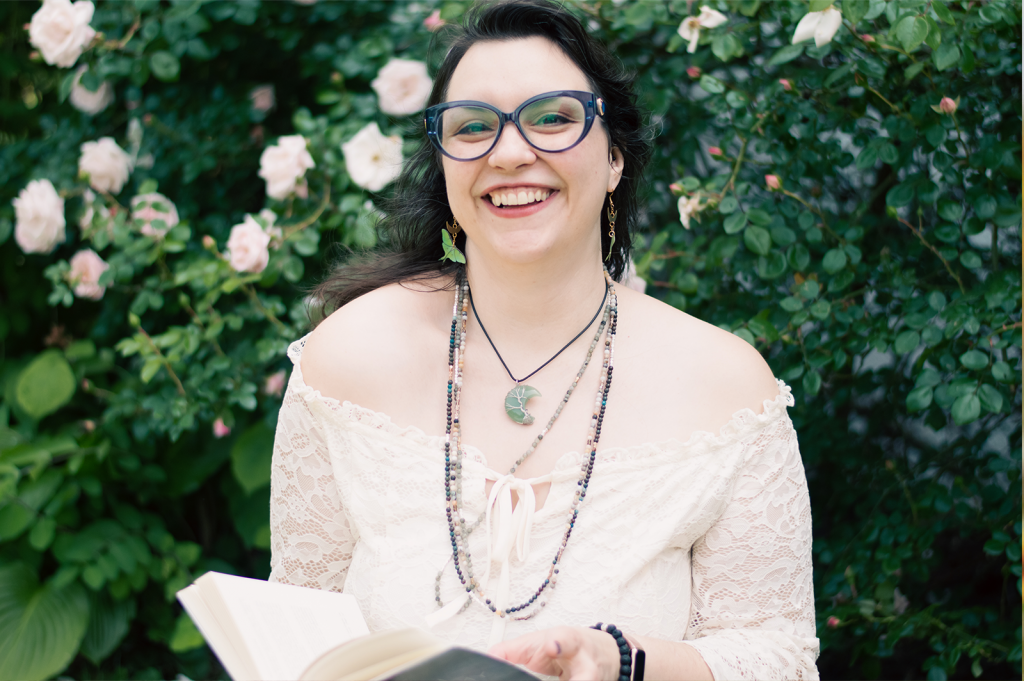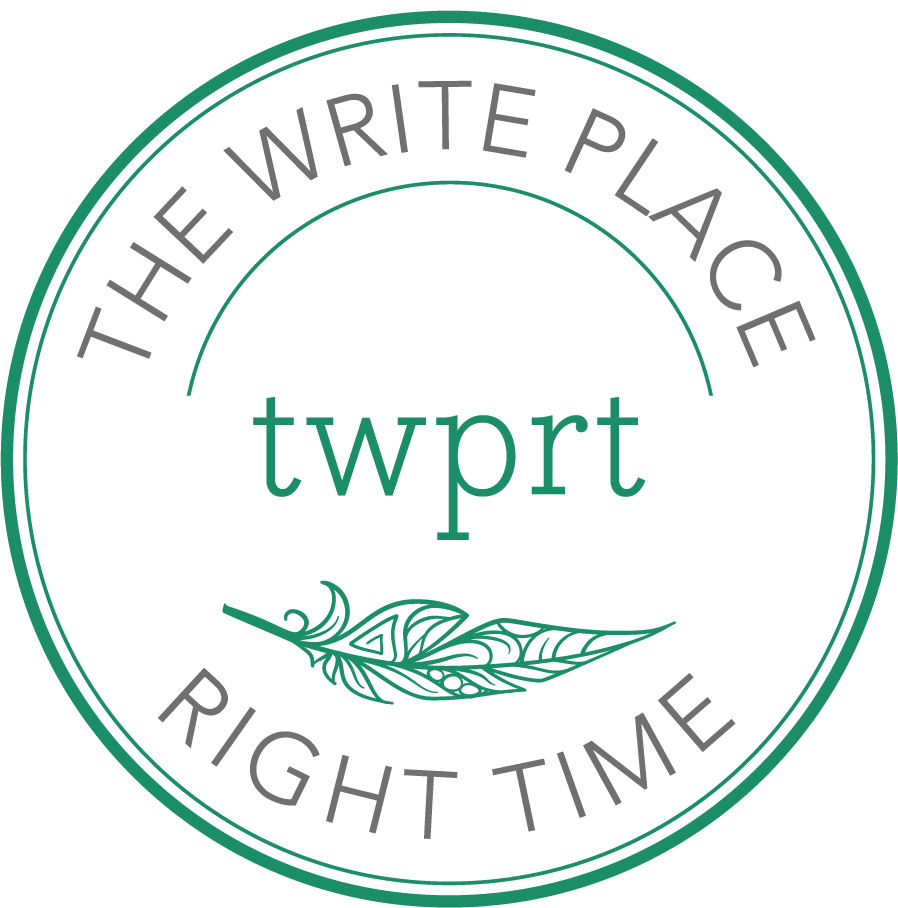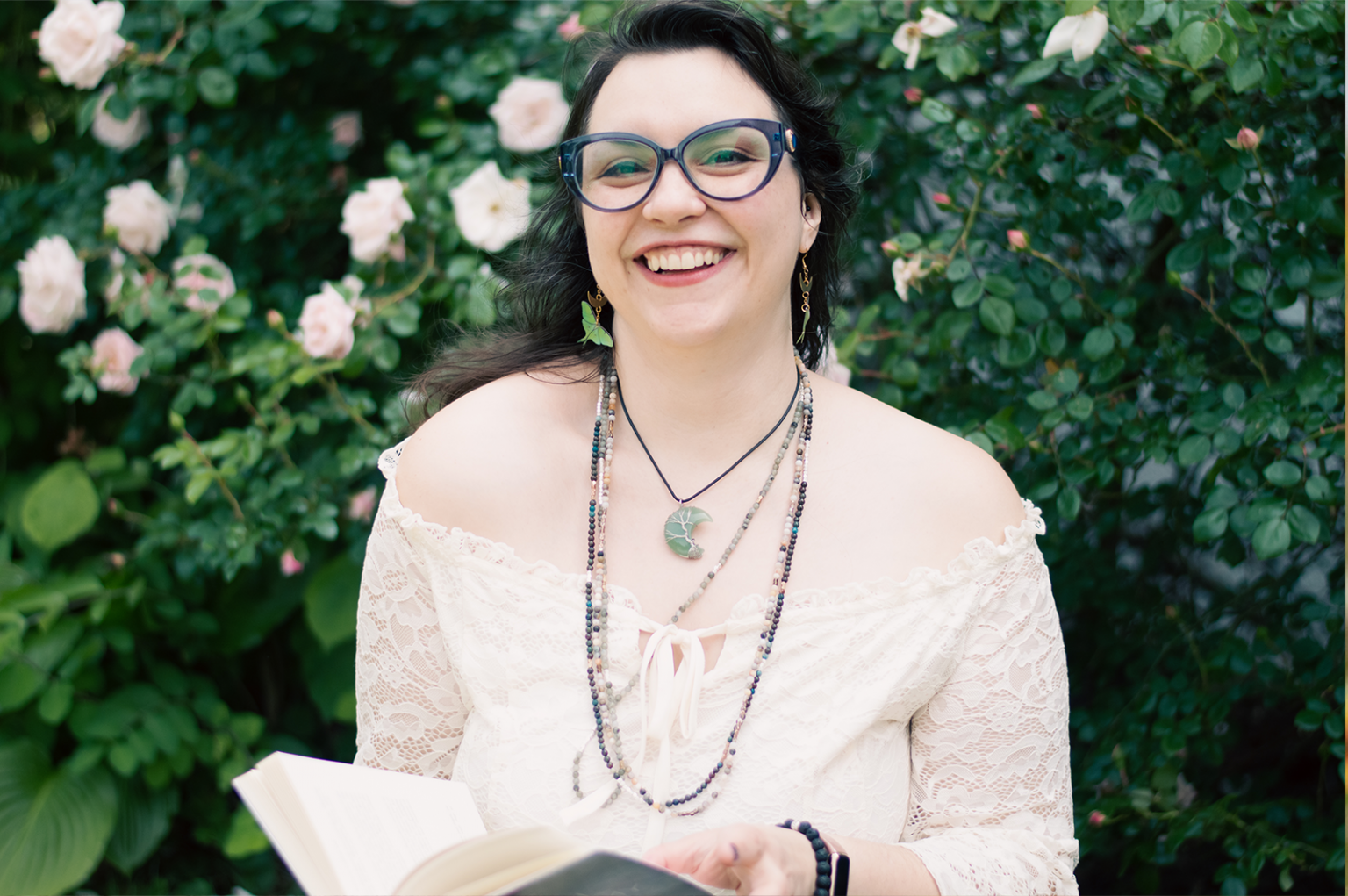This post is the first in our 2024 guest blog post series Bravely Write Your Book.
Learn from publishing professionals and authors how to bravely write your book.
Hello once again everyone! Last month we explored following your passion for writing with Linda Keating and this month I’ve found another brilliant individual from my inner circle to share their insight. Today we’re honing in on following your intuition. When you’re writing it's easy to overthink things, when sometimes your instinct is right on the money. However, going with your gut can be daunting, and knowing how to recognize and act on your intuition is a skill in its own right. Luckily, our guest this month is here with the experience and encouragement to help you build the courage to trust your intuition.
Let me introduce this month’s guest contributor–Safrianna Lughna
Safrianna Lughna, LCPC, is a retired English teacher and trauma therapist who—with a little bit of unicorn magic, a wish, and a dream—transformed into the Queer-Spirit Guide: an international best-selling author, speaker, CEO, and transformational mentor. Safrianna led the creation of Living LUNA, a podcast, community, and movement centered on authenticity and self-empowerment. The Living LUNA community is a space where often-Othered people of the world are invited to co-create an uplifting, upleveling atmosphere.
Safrianna is the author of the contemporary queer lit novel, Bumble Bees & White Balloons, exploring topics often avoided: polyamory, LGBTQ+ identities, racism, and pregnancy loss. Her poetry collections include A Woman’s Work and Daddy’s Girl, an autobiographical series of poems exploring overcoming trauma and seeking personal liberation. Both Safrianna’s creative and self-help writing has been featured across six print anthologies, as well as numerous digital publications. You can learn more about Safrianna's journey as a writer at https://Safrianna.com/author and her brand at https://LivingLUNAs.com
What advice would you give someone struggling with sharing their story?
When signs and synchronicities are flooding your path and you feel spooked out by how much the Universe seems to be conspiring to show you something—listen!
Often, we learn to ignore our intuition because as children we believed we had to shut it out. We couldn’t defend our point of view because we just knew. What we experienced may have been shut down. We were told no by misunderstanding parents. We were kept quiet by perpetrators. We were shut down by authorities.
 For many writers and aspiring authors, the calling to write is clear, but outside messages often discourage this path, telling us it’s not viable or profitable. In general, creative pursuits are often devalued, which reflects capitalistic influences. Yet, writing is important. Words are magic, and yours have the potential to impact so many lives. It takes significant bravery and courage to follow that inner voice that tells you, "You are meant to write” because it’s bold against the grain.
For many writers and aspiring authors, the calling to write is clear, but outside messages often discourage this path, telling us it’s not viable or profitable. In general, creative pursuits are often devalued, which reflects capitalistic influences. Yet, writing is important. Words are magic, and yours have the potential to impact so many lives. It takes significant bravery and courage to follow that inner voice that tells you, "You are meant to write” because it’s bold against the grain.
My advice for someone struggling to follow their intuition is to reconnect with and expand their intuition through mindful practices, journaling, and self-awareness. Begin to understand what different internal feelings and promptings mean for you, distinguishing between anxiety and intuition.
Most importantly, listen to yourself. Follow what feels authentically yours to create, not what you believe others want to hear or what you think will sell. You are being guided to craft what is yours to share.
Was there a time you struggled with sharing your story in your own writing? How did you overcome it?
Before I fully answer this, I want to share, as a retired trauma therapist, I don’t think we ever fully overcome anything. I believe we grow and expand around something, change our perspective, and gain new tools, but once we’ve been wounded, there will always be the faintest echoes at the very least.
Having said that, my struggle with writing has always been present ever since I learned to express myself via the written word. Originally, it was because I couldn’t fully share my feelings because adults were reading my private journals and text files on the computer. When I was in college, I faced numerous critiques of my style, which shut me down for years.
Then, I let a manipulative and often cruel past partner meddle in a second draft of a beloved story of mine. It was a sci-fi novel I’d been working on since I was in my very early 20s and had dedicated a great deal of care to. I was so proud of it, and several beta readers gave me great feedback on how to finesse the final draft. That partner, on the other hand, told me my manuscript was good, but would only be great if he wrote in new action and combat scenes. Our stories got so intertwined, my own voice drowned. I couldn’t face that story for years after, and still haven’t published or reworked it.
After that, I was simply terrified to share my writing. Would people from my past see? Would I trigger one of my family members? Would I be canceled? Exiled? Burned alive (you see, my fear can get the best of me, quick)!
I found a thousand and one reasons why I couldn’t write or share my work, but eventually, I saw them for what they were—excuses.
It’s an ongoing journey of healing from the heavy history my Inner Writer experienced, and so much of it comes back to embracing my intuition again. Our intuition is that still inner voice of knowing, and when others diminish that, we can lose it.
Now, I accept this as an ongoing process—I’ve stopped letting the struggles that crop up determine whether I write or not! I see the Inner Writer with all her wounds, and instead of saying, “It’s OK, just avoid that pain altogether and never write again,” I find myself able to instead just say, “I see you. I love you. You can write 'the thing.'”
What did you wish you knew then that you do now?
There were so many misconceptions and myths I absorbed about writing, being an author, and the publishing process. It was overwhelming and discouraging!
I wish I had understood the significant differences between traditional, hybrid, and self-publishing earlier. Like many niches and career paths, there is not a lot of education around the process of getting a book in readers’ hands until you start digging or talking to people who are in the field. I got a lot of my information from unpublished family members, unpublished teachers, and online groups that only taught the process of querying and landing a deal with a big publishing house. It discouraged me from pursuing it because, intuitively I suppose, it never felt right for me to go with the “tried and true” writing deal–the known publisher route. I’m pretty much the opposite of traditional!
My reluctance to embrace self-publishing stemmed from 1) a desire to fit in and do things the "right" way, and 2) a lack of awareness rather than any inherent flaws in the process.
Self-publishing and/or hybrid publishing offers significant creative freedom and control over every aspect of the publishing process, from cover design to marketing strategies. Hearing about this earlier would have saved me years of uncertainty and self-doubt. I would have launched my writing career much sooner!
If you could write a letter to your younger self about sharing your story, what would you tell them?
Dear Inner Writer Child,
Trust your unique voice.
Share the stories only you can tell.
You are a sacred and sovereign being. Do not absorb the words of those who doubt or seek to change your narrative to fit their agenda. It is okay to stand in your own creative power. You do not have to agree to anything that makes you uncomfortable or sacrifices your autonomy. You don’t have to be afraid to use your voice.
Let your passion guide you, and remember, your work doesn't need universal approval, just the right eyes.
Your words are powerful, made of magic and stardust. So shine away. The world will be better for it.
What is the most valuable advice you’ve received as a writer about sharing your story?
One–Gradually integrate safety around your writing process if it triggers you due to creative wounds, trauma, or anything else. Write in very small increments to get started.
Two–Do not edit while you’re in your first draft stage. Just write the draft and get it out. I’ve lost many years not recognizing this wisdom until I heard it at a writing event recently!
Three–If you’re intuitive like me, don’t discount “channeled” writing. If you get a download, sit down and write it! You will not remember it later like you think you’re going to!
What is one piece of advice you can provide to help someone bring their book to the world?
Do it scared. Write the book. If you find yourself gripped by fear, recognize it as a powerful sign from your intuition saying, "This is important—pursue it!" Such emotions often signal that you’re on the verge of something transformative, something that can reshape your world into something grander. It’s time to tune into your intuition!
Once you hear writing or a particular book project for the intuitive call it is, start by getting your initial draft on paper. Don’t worry about perfection or the next steps just yet. Instead, focus on the act of creation. Let the story flow from you freely, without restraint or hesitation. Later, you can assess where you might need help bringing your book into the world, but for now, just get that draft down!
Remember, persistent fear and doubt about a creative endeavor can be indicators pointing you toward your next great venture. If an idea consistently invades your thoughts and stirs up anxiety, it’s likely a path worth exploring. So, write with courage and see what happens. Your Higher Self will thank you for it!
Don’t forget to join us again next month for another installment of our 2024 Bravely Write Your Book series.
While you wait for the next blog post in this series to drop, don’t forget about these two free and readily available resources.
- The 5-Step Writing Guide to Starting (and Finishing) Your Memoir. It’s time to light up your world and ours with your story.
- My 20-minute Story Stroll where you and I get to talk openly and honestly about the book you’re feeling tapped to write. Let me help you take the next best step on your journey.

